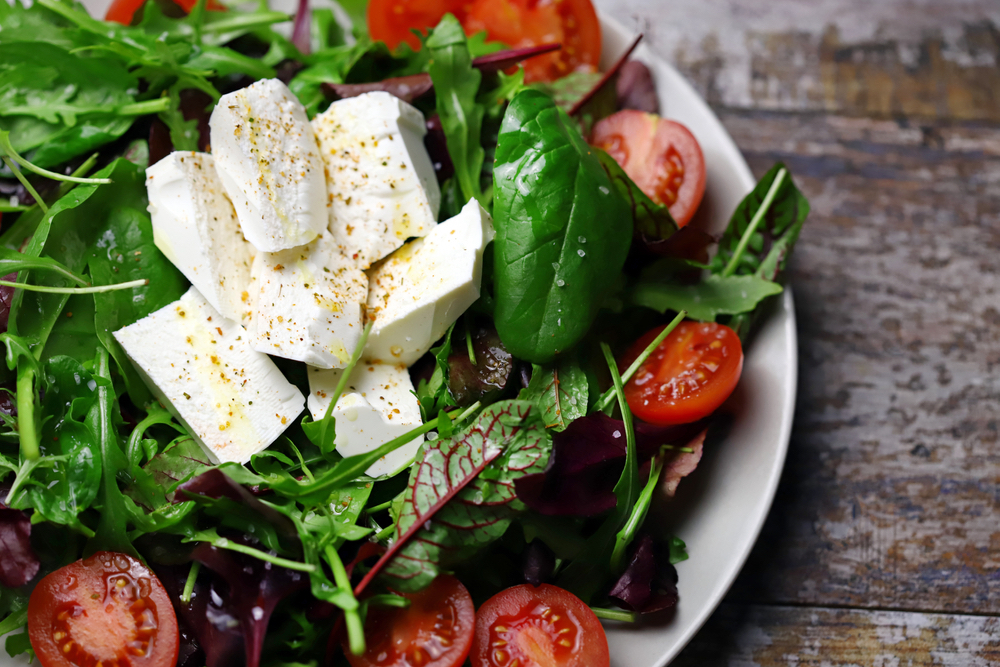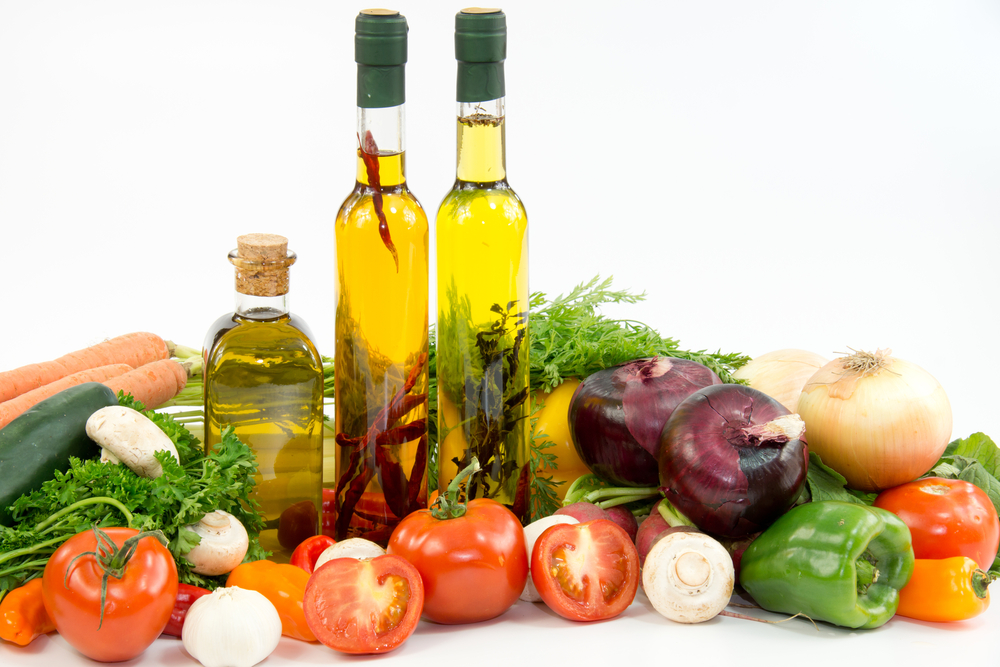The 3 Best Reasons To Do the Mediterranean Diet, According to a Dietitian

The Mediterranean diet emphasizes eating a wide variety of plants and other whole foods, but it also incorporates lifestyle behaviors
The Mediterranean diet has been touted as the healthiest diet in the world. It’s proven to reduce inflammation and heart disease, as well as support mental health now and as you age.
The benefits seem endless, but there are 3 major reasons why you should follow the Mediterranean diet, according to my research as a registered dietitian nutritionist (RDN).
What is the Mediterranean diet?
This diet is modeled after the people living in countries that surround the Mediterranean Sea. It was first observed in the 1950s that these populations have a lower incidence of cardiovascular disease despite being generally less wealthy and with less access to healthcare as compared to the United States. Since then, this diet has been studied vigorously in scientific literature.
At its core, the Mediterranean diet emphasizes eating a wide variety of plants. This includes the typical advice of eating vegetables and whole grains but also stresses including fruit, lentils, beans, nuts, herbs and spices. Healthy fats such as olive oil, nuts and seeds are a major part of this diet. The primary protein sources are seafood and poultry. When following this pattern of eating, animal products should quantify about one-quarter of your plate. This means the rest of your plate should be filled mostly with non-starchy vegetables.
The term Mediterranean diet can be used interchangeably with Mediterranean lifestyle. It incorporates other longevity behaviors such as physical activity, reducing stress and eating meals with others. The Mediterranean diet works because it’s not overly restrictive. It’s sustainable, flexible and balanced. It focuses on including whole foods and excluding sugar, saturated fat and highly processed food. The benefits seem endless, but here are the top 3 reasons why you should do the Mediterranean Diet.
Powerful anti-inflammatory properties
Chronic inflammation damages your body’s tissues and organs sometimes beyond repair. It can lead to heart disease, neurological disorders, kidney disease and other life-altering negative health consequences. Diets that are low in plant foods and high in processed foods often contribute to inflammation.
The Mediterranean diet fights inflammation because of the large variety of plants and healthy fats consumed. Vegetables, beans, lentils, fruit and nuts all offer an array of vitamins, minerals and bioactive compounds.
Vitamins C and E are powerful antioxidants that stop and reverse damage to your cells, directly fighting inflammation. Mediterranean food with the highest vitamin C and E includes citrus, bell peppers, broccoli, nuts, olive oil, seeds and whole grains. You’ll be eating plenty of these anti-inflammatory foods when following the Mediterranean diet.

Bioactive compounds are components in plants that aren’t vitamins or minerals but are incredibly important in reducing inflammation. You may have heard of tannins from coffee or wine, this is one type of bioactive compound. Namely, flavonoids are an abundant bioactive compound known to regulate your immune system and reduce unwanted inflammation. They’re found in herbs such as oregano and parsley, which are often used in Mediterranean cooking. Vegetables such as artichokes and peppers have plenty of flavonoids. Fruit such as berries are also very high in flavonoids.
Reduces the risk of heart disease
The number one cause of death in the world is from cardiovascular disease. Eating a diet low in saturated fat, processed foods and sugar is known to lower your risk of heart disease. Since the Mediterranean diet excludes those foods, following this pattern of eating will reduce your risk.
Fiber, which can be found in all plants, helps get rid of extra cholesterol circulating in your body. It’s important to eat foods that contain fiber as opposed to simply taking a fiber supplement. This is because you’ll be getting bioactive compounds which help prevent chronic disease. Quercetin, a bioactive compound found in onions, tea and wine, has anti-cardiovascular disease attributes.
Seafood, nuts and seeds will help you get enough omega-3 fatty acids. Eicosapentaenoic acid (EPA) and Docosahexaenoic acid (DHA) are types of omega-3 fatty acids. These types of fat not only help to stop inflammation but have been proven to lower cardiovascular disease risk. You can get these types of fats from hemp seeds and walnuts, but they are not the best source. Seafood is by far the greatest source of omega-3 fats. Mediterranean food highest in omega-3 fats include sardines, salmon, bluefin tuna, anchovies, bass and other fatty fish.
Supports mental health
An abundance of plants, healthy fat and poultry support your mental health in a multitude of ways. Magnesium is an important mineral for many bodily functions, yet 68% of Americans don’t get enough. One of its main functions is to regulate your neurons. If your neurons are poorly regulated it can lead to depression and anxiety. Mediterranean foods that are high in magnesium include nuts, fish, dark leafy greens and beans.
Omega-3 fats also support mental health. EPA and DHA have been linked to reducing depression in conjunction with other therapies. Researchers believe this is in part due to regulating inflammation that can occur at neurons, which if left unchecked may lead to mental health disorders. Omega-3 fatty acids also play a key role in the hypothalamic-pituitary-adrenal axis, sometimes referred to as the “stress pathway.” These fatty acids may lower cortisol levels which can help reduce your stress levels.
Key takeaways
Overall, the Mediterranean diet has plenty of positive health benefits. A diet that has a wide variety of plants, seafood and poultry has been shown to increase longevity. Coupling this with physical activity, reducing stress and eating with others is all part of the Mediterranean lifestyle. Following this diet will likely make you feel better and reduce your risk of chronic diseases.



